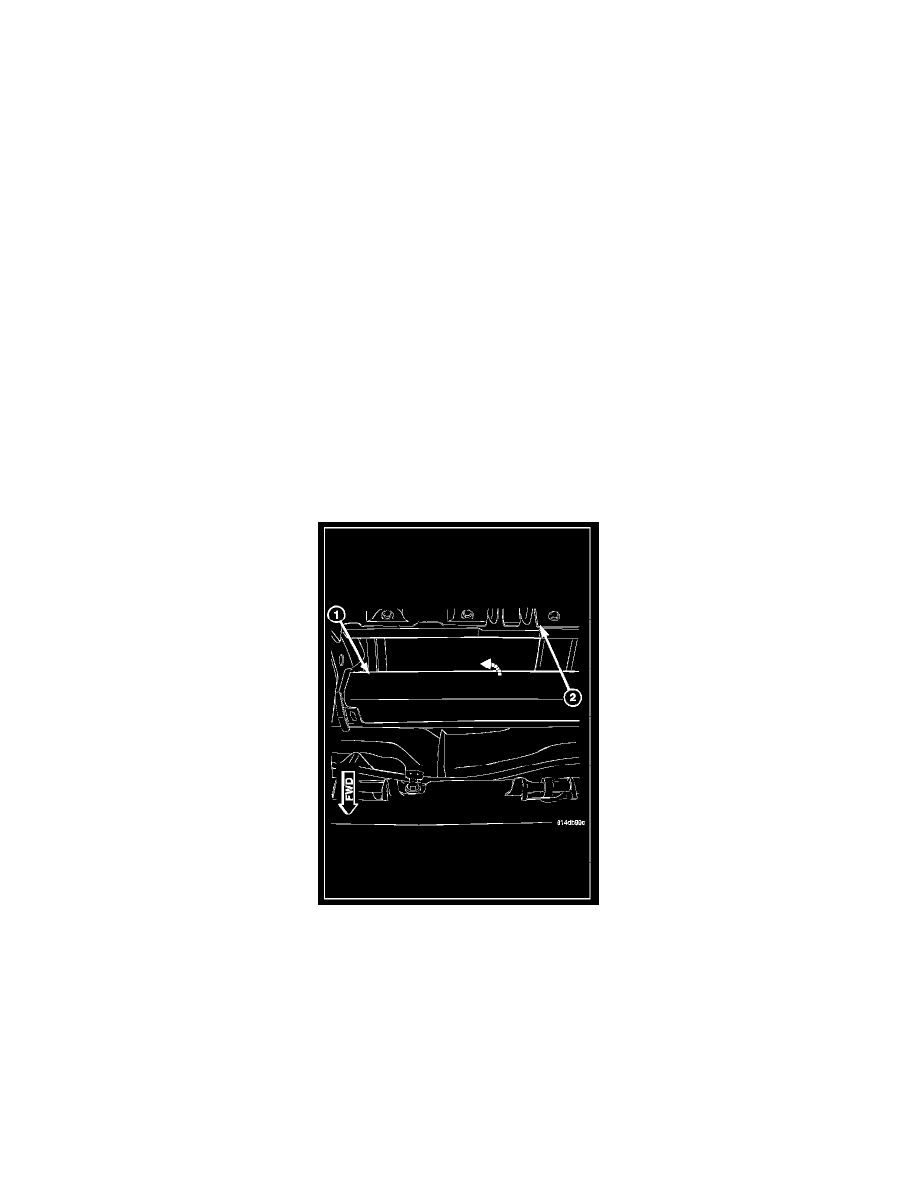Raider 2WD V6-3.7L (2008)

two screws that secure the passenger airbag lower bracket to the instrument panel support structure.
5. Using a trim stick or another suitable wide flat.bladed tool, gently pry the edges of the passenger airbag door away from the top of the instrument
panel far enough to disengage the snap features on the door from the receptacles in the instrument panel base trim.
6. Pull the passenger airbag out of the instrument panel far enough to access and disconnect the instrument panel wire harness connector from the
airbag inflator pigtail wire connector on the right side of the airbag lower mounting bracket. To disconnect the connector:
1. Slide the red Connector Position Assurance (CPA) lock on the top of the connector toward the side of the connector.
2. Depress the connector latch tab and pull the two halves of the connector straight away from each other.
7. Remove the passenger airbag from the instrument panel as a unit.
INSTALLATION
WARNING:
-
To avoid serious or fatal injury on vehicles equipped with airbags, disable the Supplemental Restraint System (SRS) before attempting
any steering wheel, steering column, airbag, seat belt tensioner, impact sensor, or instrument panel component diagnosis or service.
Disconnect and isolate the battery negative (ground) cable, then wait two minutes for the system capacitor to discharge before
performing further diagnosis or service. This is the only sure way to disable the SRS. Failure to take the proper precautions could result
in accidental airbag deployment.
-
To avoid serious or fatal injury, use extreme care to prevent any foreign material from entering the passenger airbag, or becoming
entrapped between the passenger airbag cushion and the passenger airbag door. Failure to observe this warning could result in occupant
injuries upon airbag deployment.
-
To avoid serious or fatal injury, the passenger airbag door must never be painted. Replacement passenger airbags are serviced with doors
in the original colors. Paint may change the way in which the material of the airbag door responds to an airbag deployment. Failure to
observe this warning could result in occupant injuries upon airbag deployment.
NOTE: The following procedure is for replacement of an ineffective or damaged passenger airbag. If the airbag is ineffective or damaged, but not
deployed, review the recommended procedures for handling non-deployed supplemental restraints. If the passenger airbag has been deployed, review the
recommended procedures for service after a supplemental restraint deployment before removing the airbag from the vehicle.
1. Position the passenger airbag unit onto the instrument panel.
2. Reconnect the instrument panel wire harness connector for the airbag to the passenger airbag inflator pigtail wire connector on the right side of the
airbag lower mounting bracket. Be certain that the latch on the connector and the red Connector Position Assurance (CPA) lock are each fully
engaged.
3. Carefully lower the passenger airbag unit into the instrument panel, being certain that the airbag lower mounting bracket is properly positioned to
the instrument panel support structure.
4. Reach up into the instrument panel between the upper glove box opening reinforcement (2) and the cross car beam (1) to install and tighten the
two screws that secure the passenger airbag lower mounting bracket to the instrument panel support structure. Tighten the screws to 6 N.m (55 in.
lbs.).
5. Using hand pressure, push down on the passenger airbag door over each snap feature until it snaps into its receptacle in the instrument panel base
trim.
6. Reinstall the glove box into the instrument panel.
7. Reinstall the defroster grille onto the top of the instrument panel.
